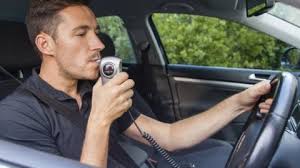DWI Interlock Devices and Exceptions
 Hate having an interlock? Want to get it off?
Hate having an interlock? Want to get it off?
Courts may, and sometimes must, require you to install an interlock in your car. This device, in simple terms, is a breathalyzer that you must use to start you car. Some interlocks will also take a picture when you blow into it to make sure it is you (or a technician). If someone else blows for you, you may be at risk for DWI probation revocation or DWI bond revocation. This post aims to explain when courts may order you to install an interlock, and some of the exceptions to the rule.
EXCEPTIONS TO AN DWI INTERLOCK REQUIREMENT
Even if the court requires you to install an interlock and ONLY drive vehicles with an interlock installed, there is one important employment-based exception.
If you need to drive for work (e.g., a car dealership), then you may be able to drive without an interlock. This exception applies for any interlock restriction (condition of suspension or DWI probation, for example). For this exception to apply:
- The employer must own the vehicle,
- Must have notification of the interlock restriction, and
- The notification must be with the vehicle.
This exception does not apply if you own or control the business that owns the vehicle. In other words, you cannot claim this exception if you are self-employed.
DWI Interlock and ALR Suspensions
After a an administrative license suspension (resulting from an ALR), the court may require proof that you install an interlock on your vehicle before they will grant a petition for an Occupational Driver’s License (ODL). Courts tend to require an interlock for a civil license suspension when you have a driving history involving multiple DWIs. When petitioning for an ODL, our DWI Attorneys make sure to discuss the possibility of an interlock requirement.
Interlock and Criminal Cases
In most situations, a first-time DWI offender does not have to worry too much about an interlock requirement before their case ends (except possibly as a condition of bond). If you are a first-time DWI offender and the court places you on DWI probation, the court will likely (but not always) order you to install an interlock on your vehicle. The likelihood of the court ordering installation of an interlock increases if the DWI involved an accident. The primary situation, for first-time offenders, where the court must require an interlock is if your BAC is at .15 or above.
With one exception, court must require you to install an interlock if you have a previous DWI conviction. There is an exception if the previous conviction is over 10 years old.
If the court places you on deferred adjudication for your DWI, the court must require you to install an interlock. This is the case UNLESS, based on a substance abuse evaluation, the court determines that the safety of the community doesn’t require an interlock.
Finally, if you are under 21 at the time of the DWI, the court must require an interlock.
General Rules
- The interlock must be installed in the vehicle owned by or most regularly driven by you.
- You may not drive ANY vehicle that does not have an interlock installed.
- You are responsible for the cost of installation and calibration.
- If the court finds you indigent, they may allow for reasonable payment plans.
Length of DWI Interlock Requirement
The length of an interlock requirement varies depending on why the court requires an interlock.
If interlock is a condition of a DWI license suspension, then the interlock MUST remain installed for the ENTIRE suspension.
If interlock is a condition of probation, then the interlock MUST remain installed for at least 50% of your probation. Please note that this also affects the waiting period to seal your record.
If this is the second DWI then interlock MUST remain installed for the whole probation period and possibly longer. This is dependent on when the first DWI occurred.
The applicable statues are Tex. Code Crim. Pro § 42A.408 and Tex. Transp. Code § 521.246.
More about Mimi Coffey
When people look for a Top DWI Attorney or Best DWI Attorney, they look for experience, certification, and respect in the legal community. Mimi Coffey is a nationally-renowned trial attorney, board-certified in DWI by the NCDD. She has been practicing for over 24 years and is an author of multiple DWI Defense textbooks. She is also a national and state-wide lecturer on the law.
The Coffey Firm handles a wide variety of cases, including Unlawful Carrying Weapon (UCW), Assault (including family violence), Theft, and Possession charges.
Mimi is also listed on several “top” directory listings such as DWI Lawyers for Wise County, DWI Lawyer Tarrant County, Dallas DWI attorney, DWI attorneys Collin County and DWI attorneys Parker County. Mimi is a caring DWI Lawyer in DFW, She is also involved in the Texas Tech School of Law foundation and enjoys using the skills she has developed to give back to the community.

